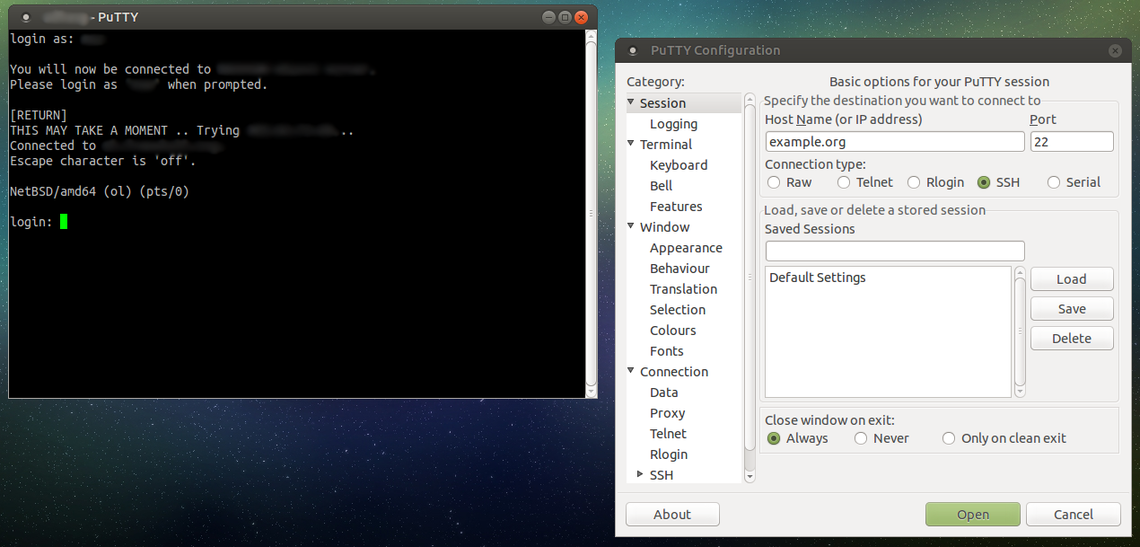PuTTY is a free and open-source terminal emulator, serial console and network file transfer application. It supports several network protocols, including SCP, SSH, Telnet, rlogin, and raw socket connection. It can also connect to a serial port (since version 0.59). The name "PuTTY" has no definitive meaning.
PuTTY was originally written for Microsoft Windows, but it has been ported to various other operating systems. Official ports are available for some Unix-like platforms, with work-in-progress ports to Classic Mac OS and Mac OS X, and unofficial ports have been contributed to platforms such as Symbian, Windows Mobile and Windows Phone.
PuTTY was written and is maintained primarily by Simon Tatham and is currently beta software.
Features
PuTTY supports many variations on the secure remote terminal, and provides user control over the SSH encryption key and protocol version, alternate ciphers such as 3DES, Arcfour, Blowfish, DES, and Public-key authentication. It also can emulate control sequences from xterm, VT102 or ECMA-48 terminal emulation, and allows local, remote, or dynamic port forwarding with SSH (including X11 forwarding). The network communication layer supports IPv6, and the SSH protocol supports the zlib@openssh.com delayed compression scheme. It can also be used with local serial port connections.
PuTTY comes bundled with command-line SCP and SFTP clients, called "pscp" and "psftp" respectively.
History
PuTTY's development dates back to late 1998, and it has been a usable SSH-2 client since October 2000.
Components
PuTTY consists of several components:
- PuTTY: the Telnet, rlogin, and SSH client itself, which can also connect to a serial port (since version 0.59)
- PSCP: an SCP client, i.e. command-line secure file copy
- PSFTP: an SFTP client, i.e. general file transfer sessions much like FTP
- PuTTYtel: a Telnet-only client
- Plink: a command-line interface to the PuTTY back ends
- Pageant: an SSH authentication agent for PuTTY, PSCP and Plink
- PuTTYgen: an RSA and DSA key generation utility
- pterm: a standalone terminal emulator
Reception
Justin James of TechRepublic cited its reliability, cost, cross platform support, and features as positives. He faulted complex configuration, extended beta testing, and lack of support for scripting. J. Peter Bruzzese of InfoWorld included it in his list of 15 Essential Open Source Tools for Windows Admins and wrote that its imitators are not as good.

